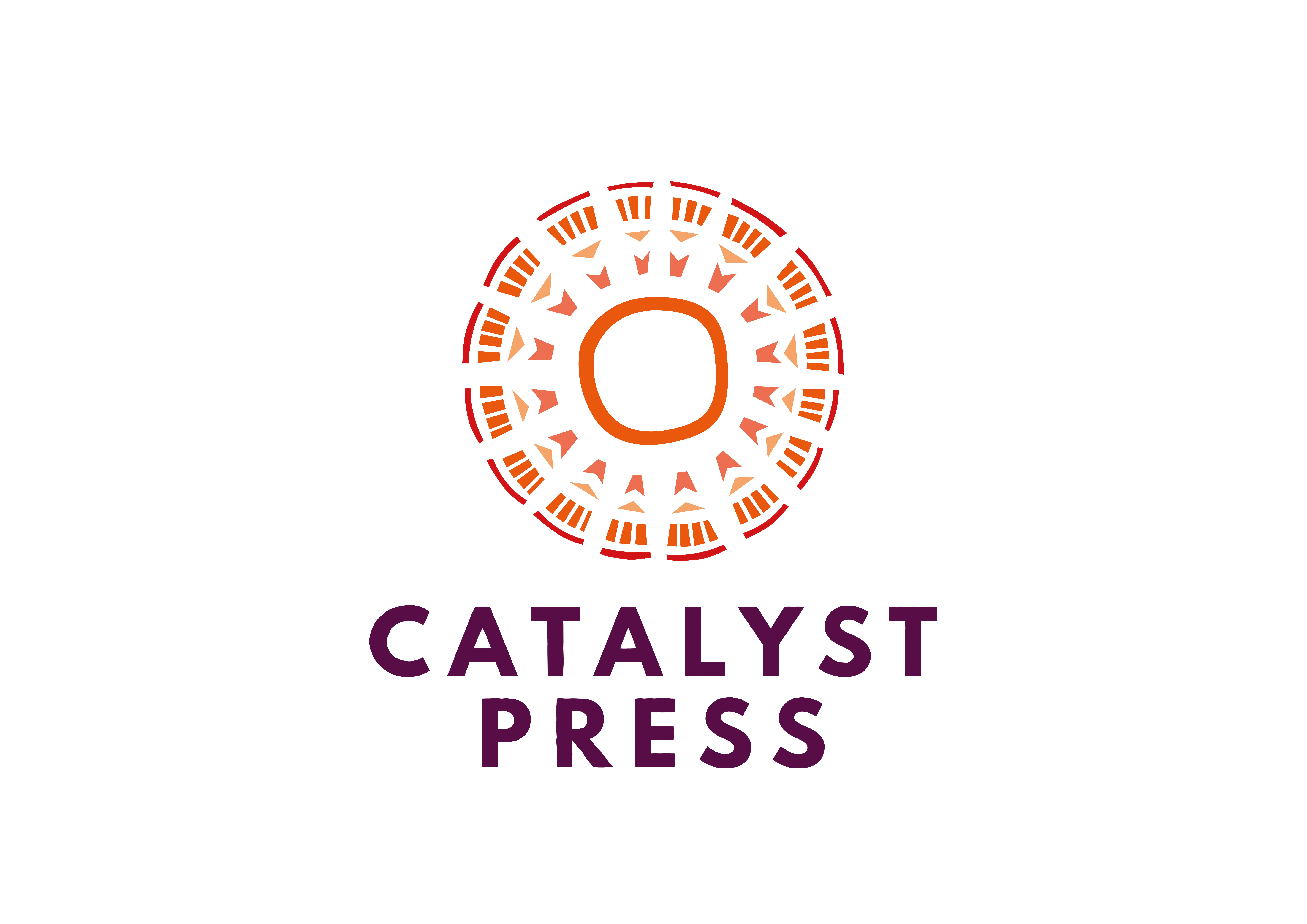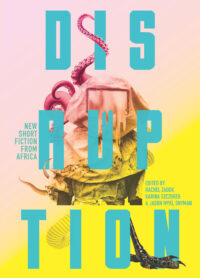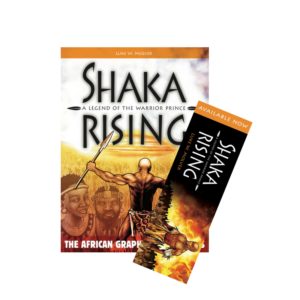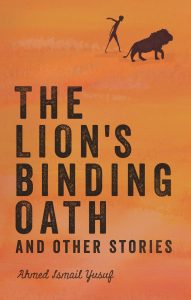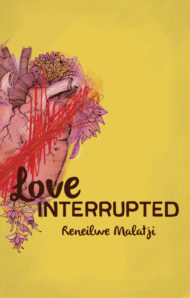We are so excited to be the North American publisher for Disruption: New Short Fiction from Africa. This thought-provoking anthology is the latest collection from Short Story Day Africa, a non-profit established to develop and share the diversity of Africa’s voices through publishing and writing workshops. And though we usually do author Q&As for our new releases, because this release features 21 authors, we’ve decided to do something a little different.
We’ve talked to some of the Disruption authors, and asked them to share some thoughts about why they write. What compels them to fill blank pages with words, images, scenes, and dialogue. What keeps them writing when it’s hard, when it feels like the words won’t come, when that story you need to tell just won’t let you go. And they answered. With thoughtful, smart, inspiring statements about what keeps them going (Responses have been edited for clarity)
Disruption: New Short Fiction from Africa, edited by Jason Mykl Snyman, Karina M. Szczurek, and Rachel Zadok is out now. Order your copy here.
Nicholas Dawn “Enough” (South Africa) “My answers to this tend to vary from the humble to the ecstatic. This one’s all Romance and mythic chili peppers: Writing is my what, my how and my why; at once pilgrimage, purpose and playground; to feel sane, connected, and free. If I’m not writing, I’m craving it, not least because it offers something unique to our culture: a psychosocial acid that dissolves the artificial dichotomy between autonomy and community. However seemingly private, reading and writing re-insert the individual into the collective, reacquaint the atom with the cosmos, the part to the whole. It’s rediscovering a strange family within oneself; it’s grappling the mystery with both hands. If what my poetry lecturer, Peter Anderson, said is true – that literature may not make us a living, but will certainly get us a life – then writing is the primordial first step: the mission to survive, and the solidarity to accomplish it.”
Nadia Ahidjo “Before the Rains Came” (Cameroon) “I write because I have to, it’s always been an outlet for me, a truly cathartic experience. When the idea of a story comes to me, it doesn’t matter where I am or what I’m doing I feel compelled to stop and write it down. The Notes application in my phone is full of text, though not all of it is completed or put together for others to read. I enjoy the way words can be strung together to connect with others and make them think and/or feel a particular way about a given topic.
Sometimes, I also write because it allows me to reflect on experiences that I’d like to share with others, especially stories that shed light on social (in)justice. We all have a role to play in positively shaping this world, and I like to hope that my contributions through my writing shift something in the way people think about themselves and the world. I struggle with engaging people who have interacted with my writing however, because for me it’s mostly about the story and not about me. It has been a huge leap for me to publish the fiction I’ve written, I’m trying to make sure I stay behind the scenes and the focus stays on the story. This is challenging in this current world we live in with all the social media and the need to drive interest in an author being directly linked to generating interest in their stories. I’m not sure that I’ll ever find the balance but I hope to keep trying and to encourage people to focus on the story and messages I’m conveying and less on me and who I am and what drives me.”
Victor Forna “Dora’s Song” (Sierra Leone): “In the beginning I only wanted to hear them and read them – with time I started feeling a twist in my heart and stomach, a blasphemous urge to tell my own stories. I have been trying ever since, I think it has been thirteen years. At first I only explored poetry, in which I felt safe. Next, and more recently, I tried my hands at short fiction, in which I have found strange wings. The hope is to give birth to novels, too, someday, and touch the world’s heartbeat. I have been introverted all my life. Writing has been a way to bare my bones to the earth and not be afraid; a way to speak with my tongue still hidden and cozy. I am at the early stages of my career as a writer and I am appreciative of this chance and audience SSDA has given to me, only the stars from here. In Salone, it’s tough to dream of the arts, but that narrative will change one way or another. Neil Gaiman said we owe it to each other to tell stories. I will play my part as strangely and beautifully as I can.”
Jacob M’hango “The Mother” (Zambia) “I write because I have a lot to say about us and our environments and the interactions that define us, and I want my words to last and matter long past my sunset. I find that written words mirror refined thought, which ages like a fine wine. Also, my hope is that maybe – just maybe – this refined thought will, if in a small way, help to open minds and foster a more humane world. And stories ensure that while readers are moved on a cerebral level, they are also moved on a visceral level. In Okot p’Bitek’s book, Artist, the Ruler, there’s a quote that reads, ‘An author, if he is big enough, can do so much for his fellow men. He can put words in their mouths and reason into their heads; he can fill their sleep with dreams so potent that when they awake they will go on living them.’
I started writing seriously in 2016, when I was teaching at an international school in Maputo, Mozambique. Increasingly, I had begun to feel empty and untrue to myself the more I drifted from my childhood passion: telling stories. Gradually, it became clear to me that I had to write – and here I am.
All of my education and everything I’ve learned and keep learning, I intend to channel towards writing. In view of this at the moment, it is rather difficult to imagine myself giving this much attention to anything else.
I have a lot of stories in me that desperately want to get out; they wake me up at night. In allowing them expression, I want to entertain and enlighten, and shock and soothe through them. And, as a historian, I intend to use my field of study as an inspiration for much of my work.”
Doreen Anyango “The Girl Who Laughed” (Uganda): “I came to writing through reading. Fiction was a big part of how I survived my angst-filled teenage years. Just by opening a book, I could escape my limited existence in a catholic all-girls’ boarding school in Uganda. I lived so many different lives without ever leaving my classroom desk. And as I read more and more, the idea slowly grew in my mind that I too could do this.
The reality is that it is very difficult to earn a living solely from writing fiction. This is especially true for the country and continent where I come from. And so I work full-time as a biotechnologist. I suppose the question then would be if I can imagine myself not writing. The short answer to that is no. I think of writing as the way I honor my existence.”
Alithnayn Abdulkareem “Static” (Nigeria): “I write because in the words of the late great Binyavanga Wainaina, “I am unable to overcome the compulsion.” I have always been a writer. Reading the writing of others have given me access to world’s my circumstances would have never permitted. I use my writing to do the same, by acting a bridge to to inconceivable worlds. I imagine that I would be a writer in any life, it is the core from which all my other skills spring from.
I am bursting with stories, always. Especially when my body is in some form of motion. I am driven to storytelling because I am constantly seeking myself out in narratives of the world, which always fall short of my expectations. I want to prove that it is possible to live with inherent contradictions and still attain excellence and be affirmed and joyful.”
Mbozi Haimbe “Shelter” (Zambia): Growing up, I used to weave stories inside my head as a form of escapism. Writing evolved organically from this, and I found the creative process cathartic in managing the stress of a demanding job. I initially wrote for myself, typically writing fanfiction based on Buffy the Vampire Slayer. As my confidence grew I decided to write original stories with my own characters. It has been steep learning curve from fanfiction to a creative writing Masters, to the present point but I persevere because writing makes me happy, and because the stories demand it of me. I think, for me, it’s the ultimate way of communicating ideas that I’d otherwise struggle to articulate. In terms of speculative fiction, my influences include N.K Jemisin, Kevin Brockmeier, Tade Thompson, Octavia Butler and Irenosen Okojie.
Philisiwe Twijnstra “The Girl Named Uka/phaza/mi/se/ka” (South Africa): I write to stay sane and create worlds that start and end differently then mine. In those worlds I reimagine my past or maybe I try to fix it. It is a way for me to define myself as a writer and human being. A process that I hope never stops.
As a child I sang like Brenda Fassie, and danced like Lebo Mathosa, read Shakespeare on the age of 12, told stories my grandmother told me. I studied acting and directed plays of different playwrights. Only after that I started to write and found that only words accepted and defined me as I am, and I was no longer depending on the words of others.
When I would not be able to write, I will always be haunted and guided by voices and names. Writing is listening, it releases me out of my dungeon and be greeted by the sun for the first time. Why would I even imagine not doing that?
But there are also stories outside that need to get in.
True stories can hide inside or are beyond one’s horizon. Stories look for writers who can give them words and that is scary, you never know the full story when you start writing, but I know each story wants to be written.
J S Louw “Laatlammer” (South Africa) I knew I wanted to be a writer since I was about four years old. Before I knew my letters, I would tell stories out loud, and my patient, ex-journalist mother would take dictation. My other abiding passion from toddlerhood onwards has been the animal kingdom and the natural world. It wasn’t until a few years ago, when it started to really sink in that we are likely to destroy most of both within my lifetime, that I decided to devote my creative work to stories and projects that bear witness to this loss, or hold up the importance of cherishing what we have left.
Laatlammer was the first thing I wrote after making this decision. I was a new mother during Cape Town’s Day Zero water crisis in 2017/18, and faced with the primal, wildebeest-level need to find good drinking water so I could feed my baby, my feelings about climate change suddenly became much more personal. The story is set in an all-too-near future where the disaster we avoided by a hairsbreadth that time has become, as the exhausted saying goes, ‘the new normal’.
